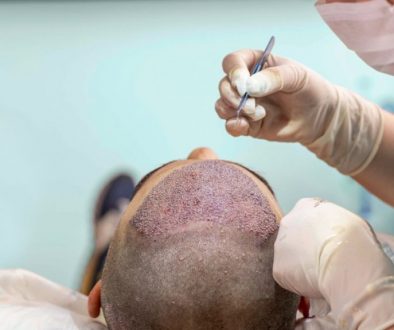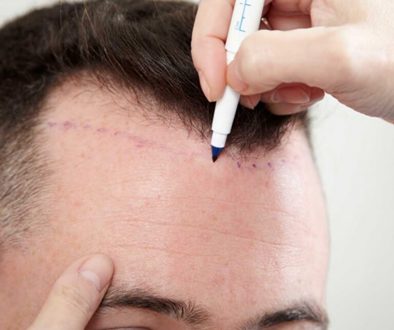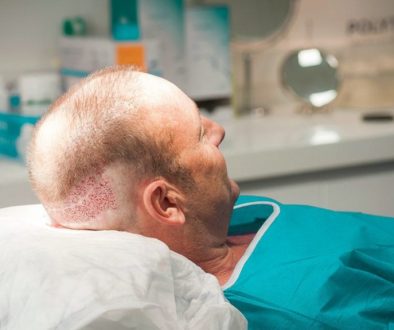Dr. Lindsey Discusses Body Dysmorphic Disorder (BDD) and Hair Transplant Surgery
Body Dysmorphic Disorder (BDD) is a psychological condition affecting patients who compulsively obsess over a perceived defect in physical appearance.
Although this condition affects a variety of individuals, it’s often seen in patients seeking permanent reversal of perceived imperfections via cosmetic surgery. In a study conducted by Dr. Katherine Philips, a research team found that 56% of Body Dysmorphic Disorder patients identified “hair” as an area of imperfection in need of repair. Based upon these findings, it’s reasonable to assume that a significant number of patients with BDD seek surgical hair restoration.
 Dr. William Lindsey, a trained facial plastic surgeon and Coalition hair restoration physician recently discussed his experience with Body Dysmorphic Disorder patients seeking hair transplant surgery at his practice:
Dr. William Lindsey, a trained facial plastic surgeon and Coalition hair restoration physician recently discussed his experience with Body Dysmorphic Disorder patients seeking hair transplant surgery at his practice:
I think BDD is an occasional problem in the hair transplant field, and a moderate problem in cosmetic surgery in general.
I vividly recall a very attractive teacher who I performed a rhinoplasty (nose surgery) on 11 years ago. I do computer simulation as a “guide,” not guarantee, of results and she had an uneventful surgery. At about 8 months post-op, she came in crying, saying she looked horrible, and her boyfriend left.
So I pulled up her pre-operative files, simulated goal, and 8 month post-operative pictures on the computer, side-by-side. She said if only I’d have gotten her nose to look like the pictures on the screen, she’d be happy; then I hit the button which shows the entire face and her ear-rings which confirmed she was looking at a picture taken 5 minutes earlier. That calmed her down with respect to her nose, but then she complained about her body, teeth … all things I don’t deal with. Despite thorough screening, I did not recognize this BDD behavior during her initial consultation.
This type of post-operative behavior seems less common in hair transplantation, or more easily detectable when a patient comes in with a distorted sense of self. It’s possible that because I’m male and most of my hair loss patients are male, I’m able to pick up on these subtle clues better and avoid situations like my previous experience with the teacher.
I personally think the best tool for screening BDD as a hair transplant doctor is a direct and almost “blunt” pre-operative approach . I tell every patient what I think they have going for them and against them and how a hair transplant procedure can impact expected (not guaranteed) results. Although some patients don’t seem to believe this approach is sincere, I think it truly helps better understand potential BDD patients and provide an honest experience for all my patients in general.
Its all about communication. Frankness, and open discussion help, but unfortunately this still can’t eliminate all hair loss related BDD issues pre-operatively.
Dr. William Lindsey
_______________
Blake – aka Future_HT_Doc
Editorial Assistant and Forum Co-Moderator for the Hair Transplant Network, the Hair Loss Learning Center, the Hair Loss Q&A Blog, and the Hair Restoration Forum
Follow our community on Twitter
Watch hair transplant videos on YouTube
Get Proven Hair Loss Treatments at the Best Prices by visiting our new Online Hair Loss Product Store
Technorati Tags: Body Dysmorphic Disorder, BDD, surgical hair restoration, hair restoration, hair transplant surgery, hair transplant field, hair transplantation, hair loss, hair transplant doctor, hair transplant procedure



